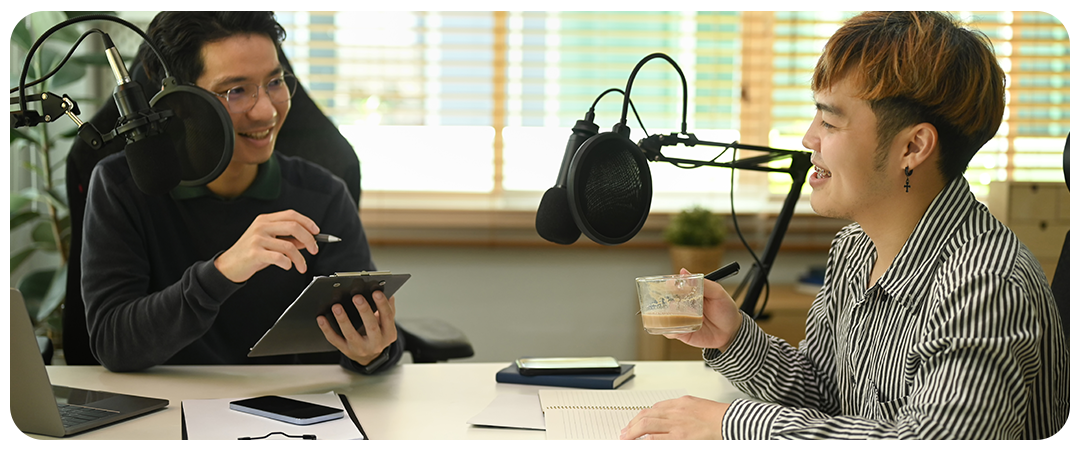
Japan boasts a sophisticated Radio market, blending long-established AM and FM stations with the increasingly popular digital platform, Radiko.jp, which simulcasts terrestrial Radio online. This dual landscape provides diverse opportunities. While traditional Radio retains a strong following, especially during commute times, Internet Radio Advertising via platforms like Radiko allows for potentially more targeted digital insertions and reaches audiences consuming media on various devices.
Our target audience – business leaders, investors, and affluent travelers – often consists of discerning individuals with busy schedules. They are likely to tune in during commutes (drive-time Radio remains crucial), seek out in-depth news and analysis, and potentially listen to specialized programs related to finance, international affairs, or culture. Understanding the radio advertising effectiveness hinges on selecting the right stations and formats that align with these habits.
Top 5 Radio Stations for Reaching Japan's Business Elite and Affluent Travelers
Pinpointing the perfect stations requires looking beyond sheer listener numbers and focusing on audience composition and programming relevance.
Here are five stations (or station types) that consistently emerge as strong contenders for reaching this demographic:
- Nikkei RN2 (Radio Nikkei): As the Radio arm of the Nikkei group (Japan's leading business publication), this station is laser-focused on business, finance, and market news. Its programming directly caters to investors and business professionals, making it a prime environment for relevant advertising. Sponsorships of specific market analysis segments or spot ads around key financial news updates are highly relevant here.
- J-WAVE (Tokyo - FM 81.3): Known for its sophisticated programming, blend of contemporary music, cultural content, and intelligent talk shows, J-WAVE attracts an urban, educated, and often affluent audience in the crucial Tokyo market. Its listeners are typically trend-aware and internationally minded, aligning well with the target profile. Consider sponsorships of lifestyle or cultural segments appealing to affluent travelers.
- FM COCOLO (Osaka - FM 76.5): Targeting a slightly more mature, globally-minded audience in the Kansai region (including Osaka), FM COCOLO features a mix of international music, news, and cultural programs. It often appeals to expats and Japanese listeners with international interests, making it suitable for reaching business leaders and travelers in Western Japan. This is a good example where Local Radio Advertising strategy becomes vital.
- TBS Radio (Tokyo - AM 954 + FM 90.5): As one of Tokyo's major legacy stations, TBS Radio offers a wide range of programming, including popular news, talk, and current affairs shows that attract a large and diverse audience, including many professionals and decision-makers. Its news and discussion programs provide credible environments for reaching business leaders and informed citizens.
- Tokyo FM (Tokyo - FM 80.0): Another major player in the Tokyo market, Tokyo FM offers a mix of music, entertainment, and information programming. Certain talk shows and news segments attract a professional audience. Its wide reach makes it a consideration, particularly for broader brand awareness campaigns targeting affluent consumers alongside business leaders.
Crafting Your Advertising Strategy: Formats, Pricing, and Targeting
Simply choosing a station isn't enough. How you advertise matters.
- Ad Formats: While standard radio CM (Radio Commercials) or spot ads offer reach, consider formats that build credibility with this discerning audience. Sponsorships of specific business news reports, financial updates, or travel-related segments lend authority. Live reads by respected hosts can also be highly effective, feeling more like endorsements than traditional ads.
- Targeting Techniques: Daypart targeting is essential – focusing on morning and evening commutes captures business leaders. Program format targeting is key – aligning ads with business news, financial analysis, or international affairs content ensures relevance. Geographic targeting, especially focusing on major hubs like Tokyo and Osaka using Local Radio Advertising in Japan strategies, concentrates budget where the audience density is highest.
Identifying Unmet Needs
While stations like Radio Nikkei cater directly to the financial community, there might be underserved segments. For instance, programming specifically addressing international investment opportunities or luxury travel tailored for Japanese business travelers might be limited. Advertisers can potentially fill this gap by sponsoring bespoke segments or even collaborating on content creation, positioning themselves as thought leaders and valuable resources, thereby enhancing the perceived effectiveness measurement beyond simple reach.
Radio advertising in Japan, when approached strategically, offers a potent way to connect with a high-value audience. By understanding the market nuances, selecting the right stations and formats, and focusing on relevant content, marketers can effectively leverage Japan Radio Advertising to achieve significant results.


